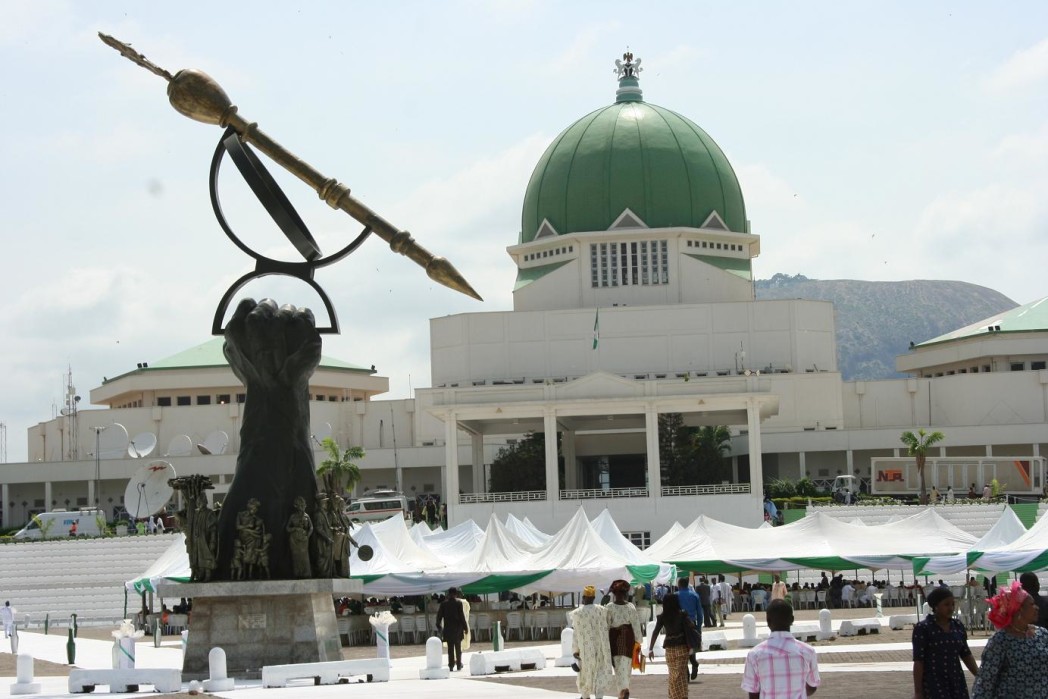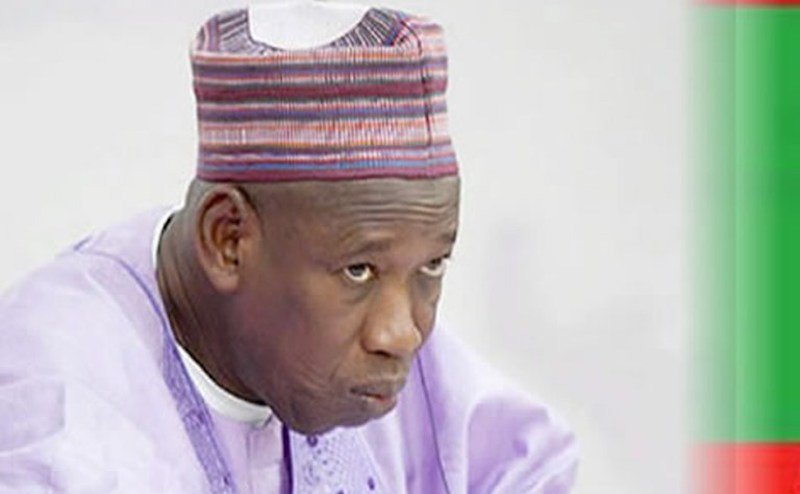The imbroglio in the Nigeria upper legislative assembly, the Senate, resulting from the defection of the Senate President, Dr. Bukola Saraki, from the ruling All Progressives Congress (APC) to the main opposition, the Peoples Democratic Party (PDP), has reached fever pitch as calls for his resignation or impeachment from a section of the APC rings the air.
Championing the calls are the national chairman of the party, Comrade Adams Oshiomhole, and Senate majority leader, Ahmed Lawan, who have threatened fire and brimstone should he fail to resign his position as the president.
On the other hand, Saraki has turned down the call to resign citing constitutional provisions and precedence obtainable world over, which permits the minority group to produce parliamentary leaders through elections.
According to Andrew Kennon, a former Clerk of Committees in the British House of Commons “The House’s freedom to make its own choice among an array of volunteers probably means that any sense of it being the ‘turn’ of a particular party is out of date.
Kennon’s over 40 years in the British House of Commons made him an authority capable of speaking authoritatively on areas of legislative elections.
Below are samples of parliamentary procedures requisite for elections in developed democracies and the precedence set for others to follow:
UNITED KINGDOM
MPs elect the Speaker from amongst their own ranks. The House must elect a Speaker at the beginning of each new parliamentary term after a general election, or after the death or resignation of the incumbent. Once elected, a Speaker continues in office until the dissolution of Parliament, unless he or she resigns prior to this. Customarily, the House re-elects Speakers who desire to continue in office for more than one term. Theoretically, the House could vote against re-electing a Speaker, but such an event is extremely unlikely. Until 2001, the election of a Speaker was conducted as a routine matter of House of Commons business, as it used motions and amendments to elect. There was, however, a considerable amount of behind-the-scenes lobbying before suitable candidates were agreed upon, and so it was very rare for a new Speaker to be opposed. However, this system broke down in 2000 when 12 rival candidates declared for the job and the debate occupied an entire Parliamentary day. Under the new system, candidates must be nominated by at least twelve members, of whom at least three must be of a different party from the candidate. The House votes by secret ballot; as in Nigeria, an absolute majority is required for victory.
In recent times, from the 19th century onwards, the Speaker has even been a member of the Opposition and not all Speakers have been the candidates proposed by the ruling Party even if they are from that Party. For example, in 1895, the Conservatives and Liberal Unionists put forward Sir Matthew White Ridley, a well-respected MP who had many years of experience, and hoped for a unanimous election as the previous Speaker had been a Liberal. However, the Liberals decided to oppose him and eventually nominated William Court Gully who had been an MP for only nine years and had been a relatively quiet presence. Gully won on a party-line vote. In 1951 there was a great demand from the Labour Party for Major James Milner to become the first Labour Speaker after he had served as Deputy Speaker for eight years. However, the Conservatives (who had just regained power) nominated William Shepherd Morrison, Conservative MP, against him. This was at the time an unusual step. The vote again went down party lines, and Morrison was elected. In 1992, Betty Boothroyd, a Labour MP who had been Deputy Speaker, contested against the Conservative former Cabinet member Peter Brooke. About 70 Conservative MPs supported Boothroyd ensuring her election. She was the only Speaker elected in the 20th century not to be a member of the governing party at the time of her first election. In 2000, most Labour MPs supported Michael Martin. However, most Conservatives felt that a Conservative Speaker should be chosen. They supported two prominent Conservatives, Sir George Young and Deputy Speaker Sir Alan Haselhurst. After a lengthy sitting of the House, Michael Martin was elected Speaker. Following the debacle of this election the rules were changed as stated above. In 2009, John Bercow, a Conservative MP was elected Speaker following an election by secret ballot in which the frontline Labour MP, Margaret Beckett, and another Labour MP, Parmjit Dhanda, participated. Labour was in Government at this time. Bercow thus became the first Speaker to be elected in the 21st century not to be a member of the governing party at the time of his first election.
IRELAND
The Ceann Comhairle (“head of the council”) is the chairperson (or speaker) of Dáil Éireann, the lower house of the Oireachtas (parliament) of Ireland. The person who holds the position is elected by members of the Dáil from among their number in the first session after each general election. Despite this, a government usually tries to select a member of its own political party for the position, if it has enough deputies to allow that choice. The Leas-Cheann Comhairle holds office as the Deputy Chairman of Dáil Éireann under Article 15.9.1 of the Constitution. In the absence of the Ceann Comhairle, the Leas-Cheann Comhairle deputises and performs the duties and exercises the authority of the Ceann Comhairle in Dáil proceedings. By tradition, the position is reserved for the Opposition, but the appointment is made by the Taoiseach (Prime Minister) of the day.
AUSTRALIA
The President of the Senate is elected by the Senate in a secret ballot. The Clerk conducts the election. The Presidency has always been a partisan office and the nominee of the government party has nearly always been elected, although this cannot be guaranteed since the government of the day does not necessarily have a majority in the Senate. The President is assisted by an elected Deputy President.
The traditional practice has been that the government nominates a Senator to be elected as President, and the Opposition nominates a Senator to be Deputy President. If there are no other nominations, no election is required, however the Australian Greens in 2005 and again in 2007 put forward Senator Kerry Nettle as a rival candidate when the position of President was vacant. Neither Government nor Opposition Senators supported that candidacy. After the 1996 election, the Labor Party refused to nominate Colston to become Deputy President of the Senate. In a bid to win him over, the Howard Coalition government offered to support him. Colston resigned from the Labor Party by fax message at 11:30 a.m. on 20 August, and he took his seat as an independent that afternoon. In the evening, he was elected Deputy President, on the nomination of the Coalition.
UNITED STATES
The Constitution designates the Vice President of the United States as President of the Senate. The Constitution also calls for a President pro tempore to serve as the leader of the body when the President of the Senate (the Vice President) is absent. In practice, neither the Vice President nor the President pro tempore customarily the most senior (longest-serving) Senator in the majority party actually presides over the Senate on a daily basis; that task is given to junior Senators of the majority party.
The Senate Majority and Minority Leaders are two United States Senators who are elected by the party caucuses that hold the majority and the minority respectively. These leaders serve as the chief Senate spokesperson for their parties and manage and schedule the legislative and executive business of the Senate.
Party leaders and whips of the United States House of Representatives are elected by their respective parties in a closed-door caucus by secret ballot and are also known as floor leaders. The U.S. House of Representatives does not officially use the term “Minority Leader” although the media frequently does. The House instead uses the terms “Republican Leader” or “Democratic Leader” depending on which party holds a minority of seats.
In common U.S. Congressional Republican caucus legislative usage, the caucus chair is styled conference chairman and is outranked by the Speaker or Senate President pro-tempore, and the leader or whip of his or her party.
CANADA
In Canada, the elected members of each party in Parliament, including senators, or a provincial legislature, elect among themselves a caucus chair who presides over their meetings. The exception to this norm is the Conservative Party of Canada, whose caucus chair is appointed by the party leader. This person is an important figure when the party is in opposition and an important link between cabinet and the backbench when the party is in government.
FRANCE
The Senate is the upper house of the Parliament of France, presided over by a president. The senators elect a President from among their members. The current incumbent is Gérard Larcher. The President of the Senate is, under the constitution of the Fifth Republic, first in the line of succession in case of death, resignation or removal from office (only for health reasons) to the Presidency of the Republic, becoming Acting President of the Republic until a new election can be held.
Elected by secret ballot at the beginning of the legislative session by members, the President of the National Assembly represents the Assembly and directs discussion and debates.
The President normally comes from the largest party represented, assisted by Vice Presidents from across the represented political spectrum.
The above is a testimony that the President of the Senate has not fallen short of any constitutional provision, and should not be in any form of pressure to relinquish his position, or be threatened with impeachment before his party might be in the minority.
The case of John Pam West of the Senate and Edwin Ume-Ezeoke of the Nigerian Second Republic are clear evidences of the what must be.

 News6 years ago
News6 years ago
 Featured6 years ago
Featured6 years ago
 Boss Picks6 years ago
Boss Picks6 years ago
 Headline6 years ago
Headline6 years ago
 Headline6 years ago
Headline6 years ago
 Headline5 years ago
Headline5 years ago
 Headline6 years ago
Headline6 years ago
 Headline6 years ago
Headline6 years ago













